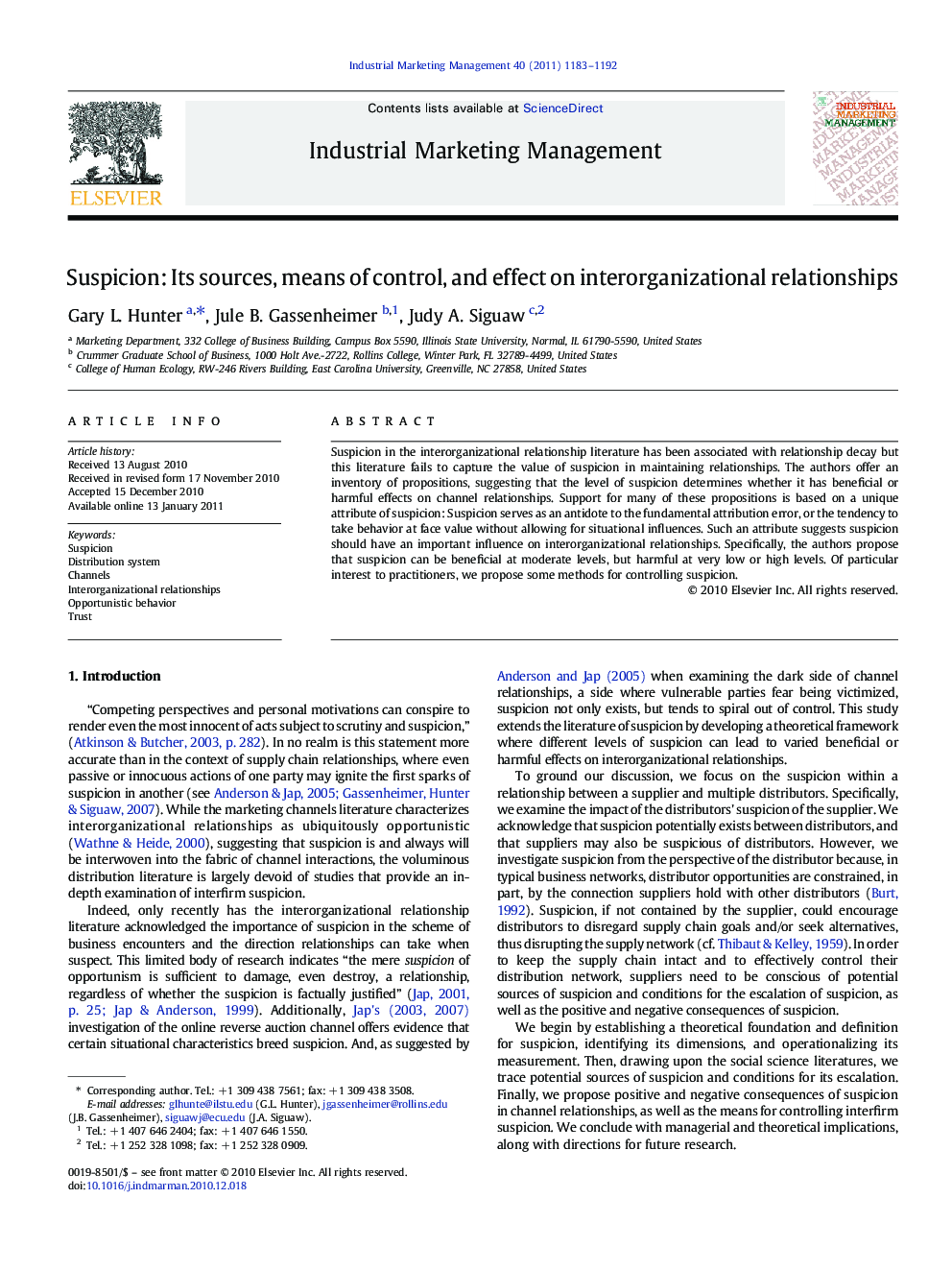| Article ID | Journal | Published Year | Pages | File Type |
|---|---|---|---|---|
| 1027702 | Industrial Marketing Management | 2011 | 10 Pages |
Suspicion in the interorganizational relationship literature has been associated with relationship decay but this literature fails to capture the value of suspicion in maintaining relationships. The authors offer an inventory of propositions, suggesting that the level of suspicion determines whether it has beneficial or harmful effects on channel relationships. Support for many of these propositions is based on a unique attribute of suspicion: Suspicion serves as an antidote to the fundamental attribution error, or the tendency to take behavior at face value without allowing for situational influences. Such an attribute suggests suspicion should have an important influence on interorganizational relationships. Specifically, the authors propose that suspicion can be beneficial at moderate levels, but harmful at very low or high levels. Of particular interest to practitioners, we propose some methods for controlling suspicion.
Research Highlights► We build a theoretical foundation and definition for interorganizational suspicion. ► We offer propositions regarding suspicion and interorganizational relationships. ► Suspicion at moderate levels is beneficial to interorganizational relationships. ► Extreme levels of suspicion are harmful to interorganizational relationships. ► Several methods are proposed for a supplier to control levels of suspicion.
